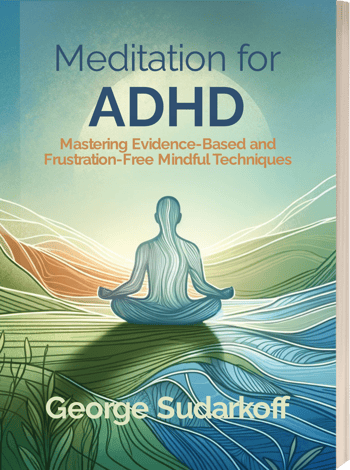Meditation for ADHD
A practical guide to solving ADHD challenges with simple meditation techniques
This Practical Guide flips the script on traditional meditation advice that leaves ADHD brains frustrated and feeling like failures.
Instead of impossible demands for stillness and sustained focus, this book offers quick-start techniques you can benefit from in under two minutes, movement-based practices that work with your natural energy, and a unique reference approach that lets you jump directly to solutions for specific challenges like impulsivity, emotional regulation, or sleep.
Written by someone who's navigated both ADHD and meditation for decades, it's the guide that finally makes meditation accessible to the ADHD mind—because sometimes the most restless brains need meditation the most.

